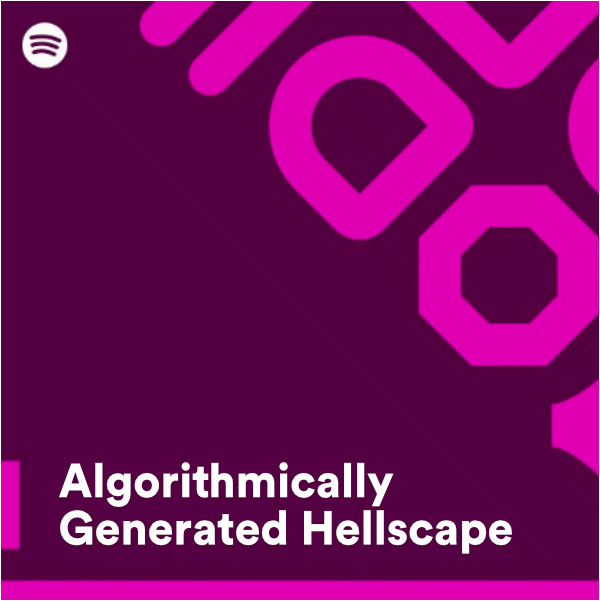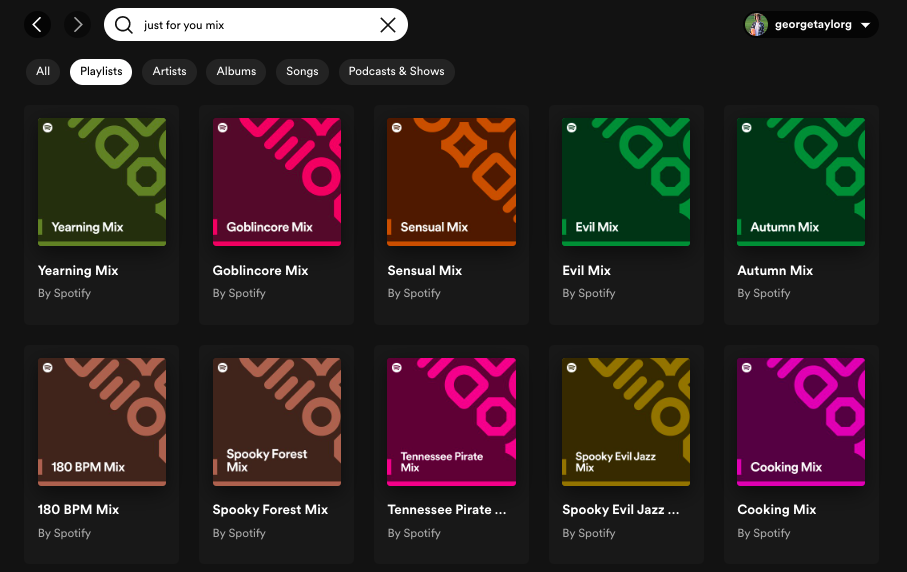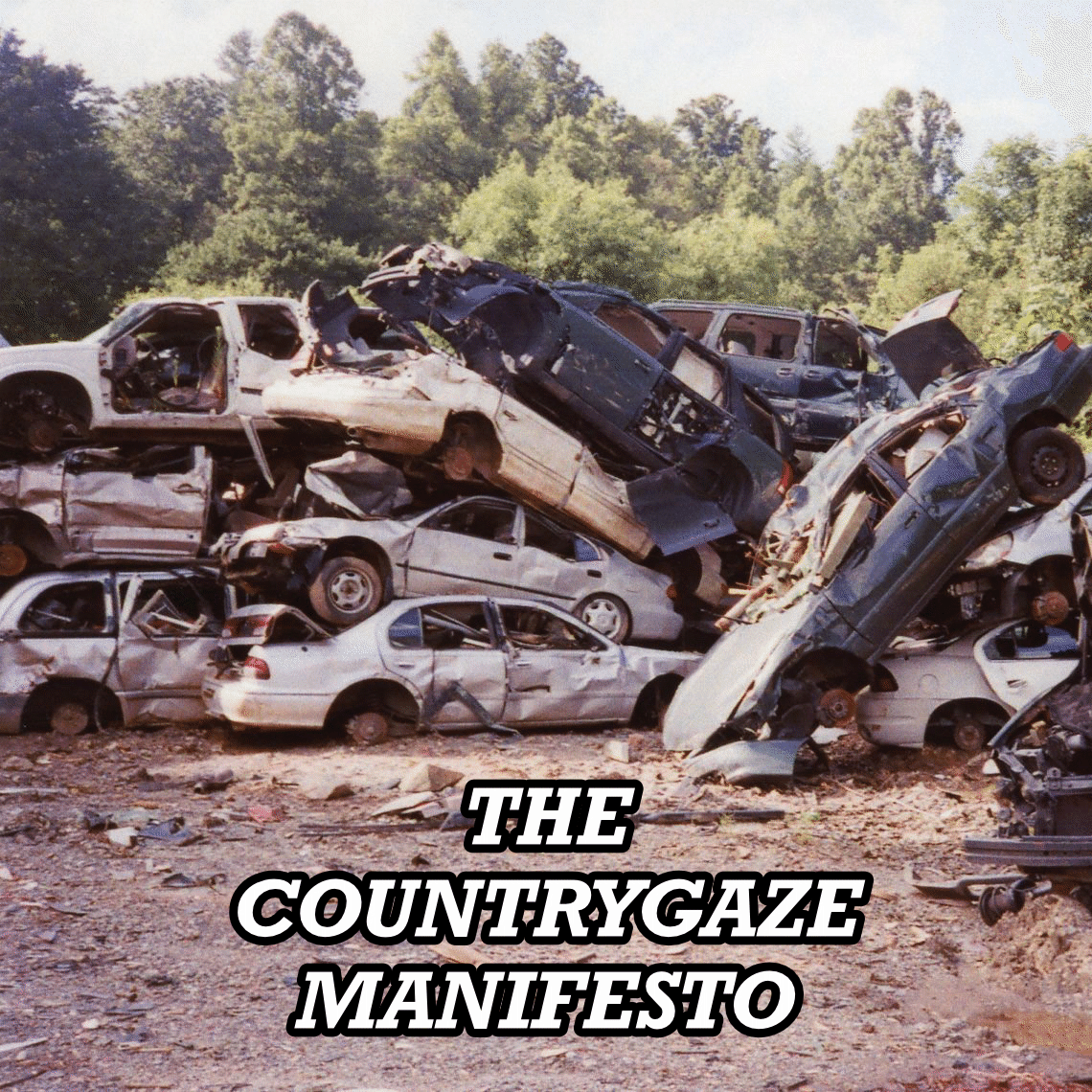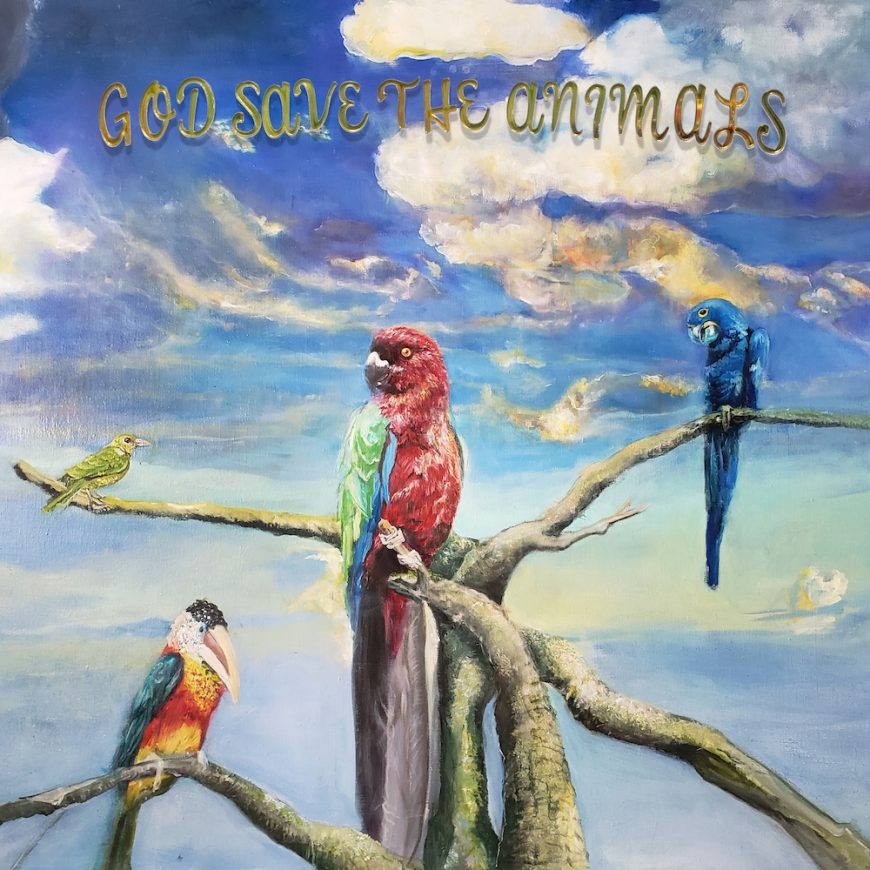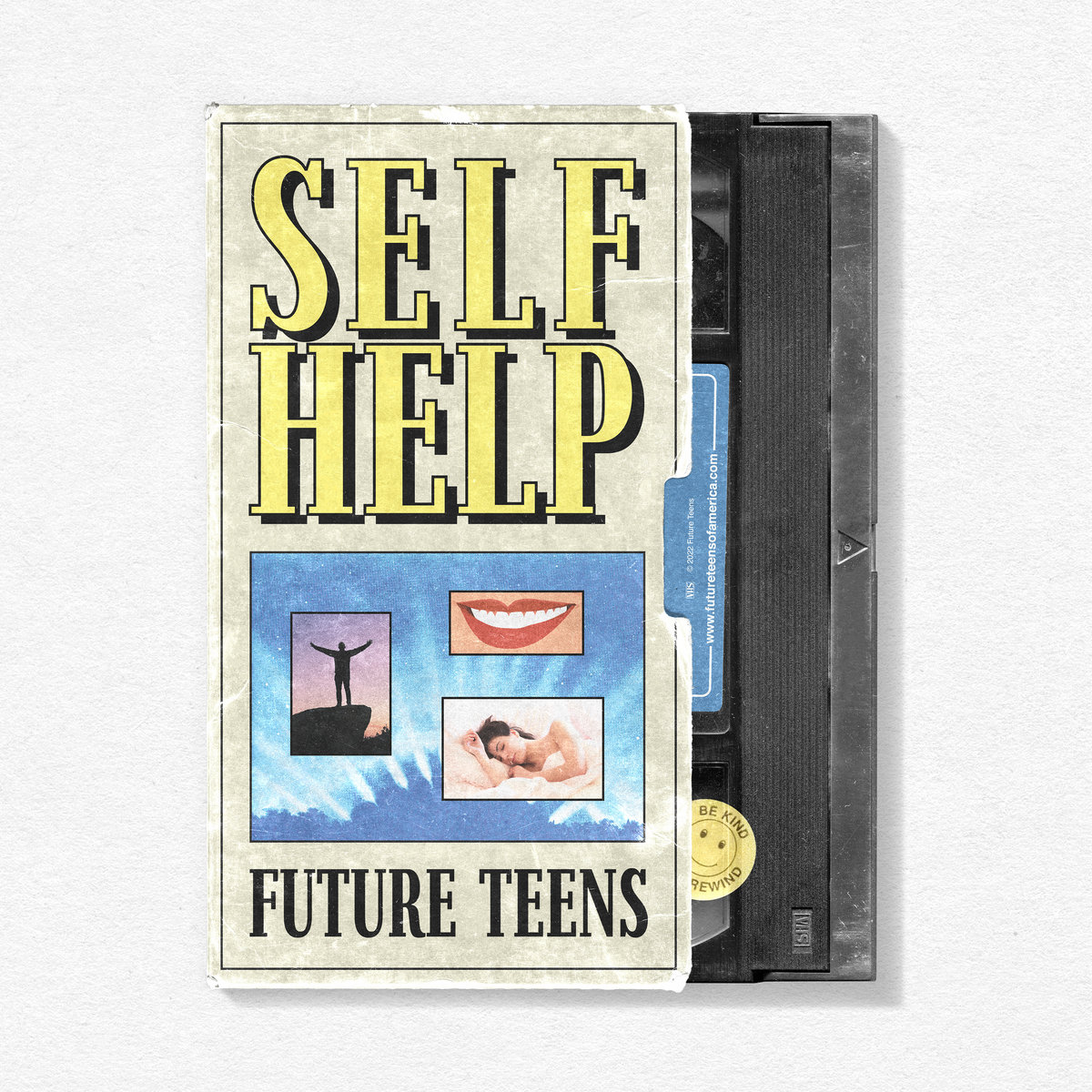Welcome to Spotify's Algorithmically Generated Hellscape
/This is Big Thief.
This is Soundgarden.
This is Neil Young… Well, not anymore.
We’ve all seen these playlists when searching for our favorite artists on Spotify. If you open the app, press the little magnifying glass, and type in the name of virtually any band with more than 50 songs, you’ll probably see some variation of the same results; the Artist’s page, a few popular songs or albums by them, and then a playlist boldly declaring, “THIS IS [insert artist name].”
Those playlists exist for any artist that meets the minimum criteria, and they are designed to put together a decently-sized 2- to 4-hour-long playlist of all the artists’ most streamed songs in one place. Spotify’s “THIS IS” playlists exist for artists of all sizes and every music genre. This is Ed Sheeran. This is Michael Jackson. This is Weird Al. You get it.
The scale of these playlists ranges from gargantuan collections of classic works to mildly successful indie rock groups from your hometown. In some cases, they act as decade-spanning histories of massively influential artists like The Rolling Stones. In other cases, they are pretty serviceable representations of a band’s collective work, like Stone Temple Pilots. In every case, these playlists are meant to do one thing: emulate a Greatest Hits record.
This allows a casual user to search for a band, stumble upon this playlist, and scroll through a bunch of their most popular songs in one place. These playlists, along with the addition of a dedicated lyrics function, signify a change in Spotify upping their SEO and bolstering their recommendation engine. Alongside these more helpful quality of life changes is a new initiative that’s simultaneously goofier and far more sinister.
Back in early November, Twitter user @_gaydro posted a picture of their Spotify app showcasing a playlist flatly named “Evil Mix.” The description beneath the automatically-generated playlist cover reads, “Evil music picked just for you.”
People in the comments and quote tweets were quick to dive into their own Spotify apps and report back the most obscure and outright hilarious examples they could find within their libraries. Fast clown music. Spooky evil jazz mix. Tennessee pirate mix. Each title seemed more incoherent and absurd than the last; a gobbledygook combination of nouns, buzzwords, and vaguely musical terms, all denoted as from Spotify and “made for you.”
One Redditor commented on the sheer breadth of dog-specific playlists that Spotify had crafted for him: Calm Dogs Mix, Dogs Calming Mix, Dogs Pet Calming Mix, and more. “I must have searched once for music to help my dog figure fireworks out, and now I am gifted with this kind of variety… If you scroll slow enough, the page just keeps loading, so I don't think there is an end to the algorithm attempting to satisfy your every need,” they observed.
These playlists are essentially an extension of Spotify’s Daily Mix program. In a press release from early 2021, Spotify explains the fuel behind these mixes with an impressive stat, explaining that “every day, half a trillion events—whether they are searches, listens, likes, or countless other actions—take place on Spotify, powering and guiding our machine learning system. This gives us the ability to drive discovery in a way that audio has never seen before.” In their own bland, corporate, grey-cubicle-approved marketing words, “Spotify Mixes represent the next generation of focused, personalized offerings.”
So that raises a few questions, why so many? Who is this for? What the hell is going on? It was a fun day to be online and see what insanely specific playlists people were able to dig up, but I didn’t think much of this phenomenon until I traveled home for the holidays and was poking around the family computer to find that my own mother had saved one of these playlists. Happy Birthday Mix. There it was, staring me in the face. I finally understood.
Those far-out examples of “Goblincore Mix” and “Crazy Bagpipes Mix” are inherently goofy, but these “normal” instances like “Happy Birthday Mix” make much more sense. I can practically see my mom, on her birthday or the birthday of one of my brothers, searching Spotify for “happy birthday,” finding that playlist, and saving it. I mean, why not?
Maybe I’m just being overly precious about “mah playlists,” but it rubbed me wrong to see some algorithmically-generated bullshit garnering attention and listens just because Spotify has created a glut of playlists meant to catch any possible combination of terms a user could type into their app.
In almost every case, these mixes are filled with “just some songs.” The more straightforward playlists will populate with a handful of songs you’ve already listened to and a dozen others that the Spotify Machine Brain thinks you will enjoy. For instance, my 70s Rock Mix (clocking in at an even four hours) opens with “Iron Man” and Tangerine” before throwing to some Heart and Pink Floyd. In these cases, Spotify is serving you music it already knows you like and throwing a few deeper cuts into the mix here and there. That’s where the “made for you” comes in; Spotify is just pulling your own data and serving it back to you under the guise of something specific like “Sensual Noise Mix.”
As you would expect, the goofier playlists are where things get even weirder. The more absurd mixes contain songs that fit their criteria in very literal ways with song titles, artist names, or even album covers that fit the description. For me, “Fast Clown Music Mix” includes songs from a band named Clown Core taken off an album called Van, which has cover art depicting a blue minivan. The same playlist opens with a song off an album called Mirror Might Steal Your Charm, which features a sort of jester-like figure on its cover. Now that sounds like Fast Clown Music picked just for me.
So why does this matter? This technology is still in its infancy, but I believe these mixes are something Spotify is testing to trick their users more effectively. People have no insight into how these playlists are made, what goes into them, or how many of them there are. People just look up a term and are served a loosely-themed collection of music that they’re probably already familiar with. Alternatively, they’re given a playlist packed with a bunch of tangentially-related songs that fit some surface-level criteria.
Where this gets complicated is that Spotify can choose what songs are placed within these mixes with zero transparency. After all, we’re talking about a company that gives out $4 for every thousand plays. They’re notoriously cheap and view the music being uploaded onto their platform as mere content. On the one hand, Spotify is making music more accessible than ever; on the other hand, they’re actively devaluing art.
A couple of years back, Spotify introduced “Discovery Mode,” which is like the platform’s own version of pay-to-play. With this feature, the streaming company borrowed a concept from the days of radio where an artist (or, more likely, label) would pay a station to play their songs more frequently. With this in mind, it’s easy to see how Spotify could manipulate what tracks appear on these playlists and therefore get streams.
Am I saying these bands are fake? Not necessarily, but that is something Spotify has been accused of. By the same logic, it’s easy to see how Spotify could fill hours of these types of playlists with ambient music, “peaceful piano” tracks, and faceless acoustic fare. It doesn’t matter if the artists behind these songs are real because the playlists are meant to fill a specific vibe, mood, or need. Cozy Christmas Music Mix. Dinner Party Mix. Beach Music Chill Evening Mix. They mean nothing.
This could just be the rambling of one overly-concerned overly-online music nerd, but I think that any time Spotify removes the agency out of music consumption, it’s a reason to be wary. Their series of “This Is” playlists are a microcosm of a platform-wide issue of pushing streams (and money) only to the top. Most artists do not turn a profit from Spotify, and that isn’t a sustainable business model.
Tricking people into clicking on (and listening to) an algorithmically-generated playlist of songs is a step further. It’s gaming a system that’s already rigged. It will be fascinating to see what comes of these playlists over the next year or two. I’m interested to see if they become more plentiful, elevated higher within the app, or how often they start popping up over actual playlists and albums made by real humans.
The truth is that Spotify has a vested interest in keeping you on their platform, but even more so if you’re listening to the artists they want you to listen to. They don’t want you to think. Spotify doesn’t want you to search for a small artist or listen to a specific album; they want you to throw on a four-hour-long megamix of music they have already chosen for you. Conscious listening is bad for business, Spotify wants you to devour slop from their trough.
Ultimately, when Spotify chooses what we listen to, we’re not listening to music anymore; we’re just listening to Spotify.
